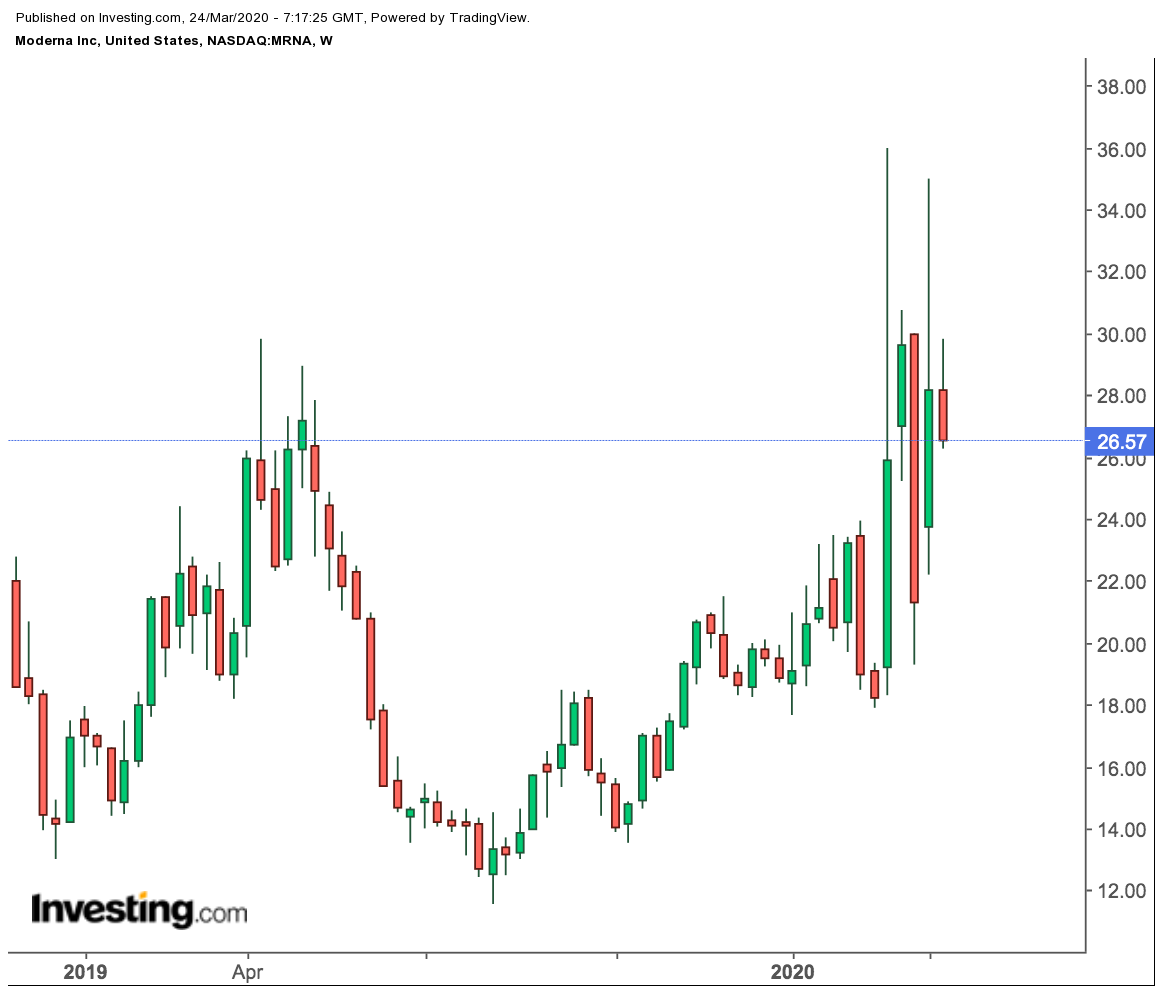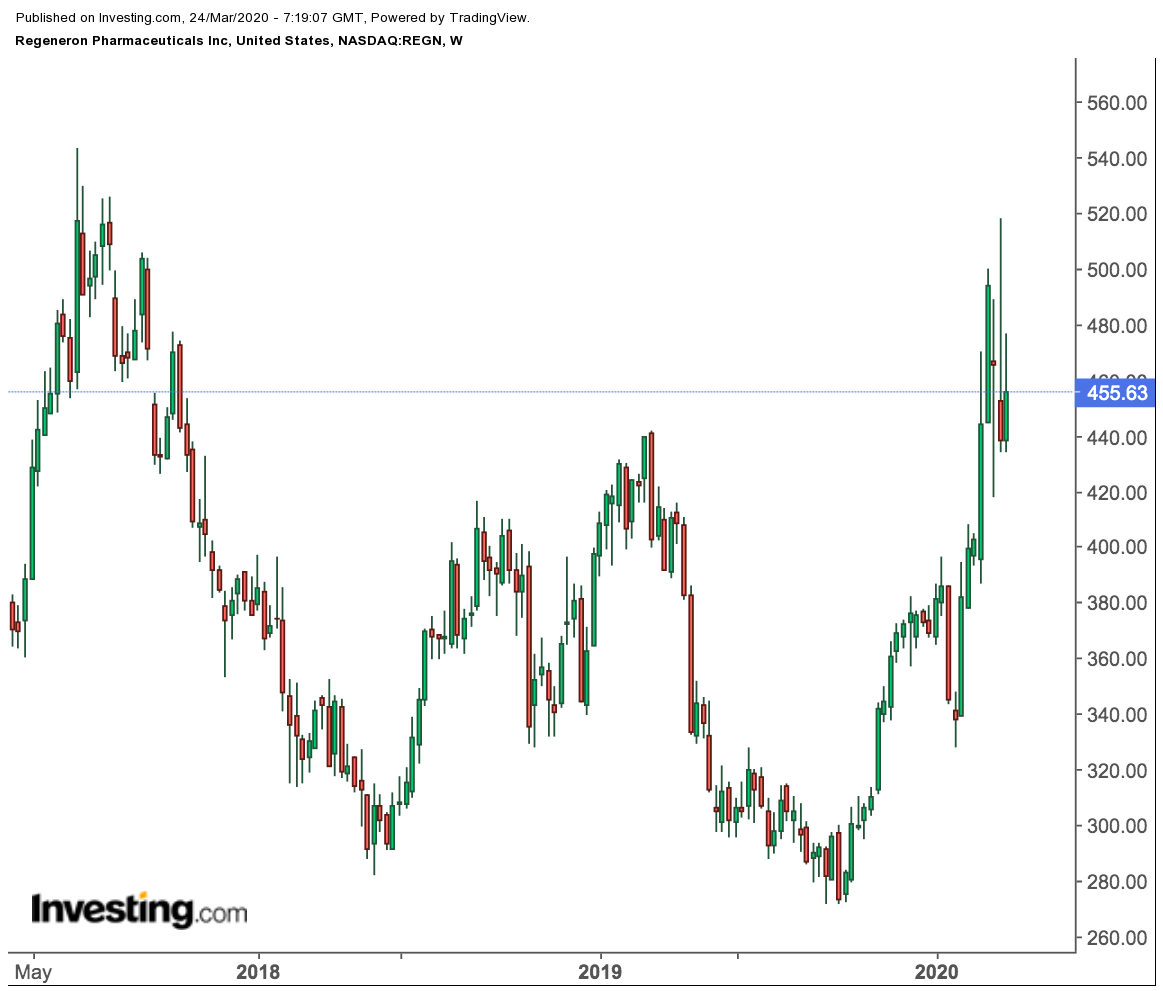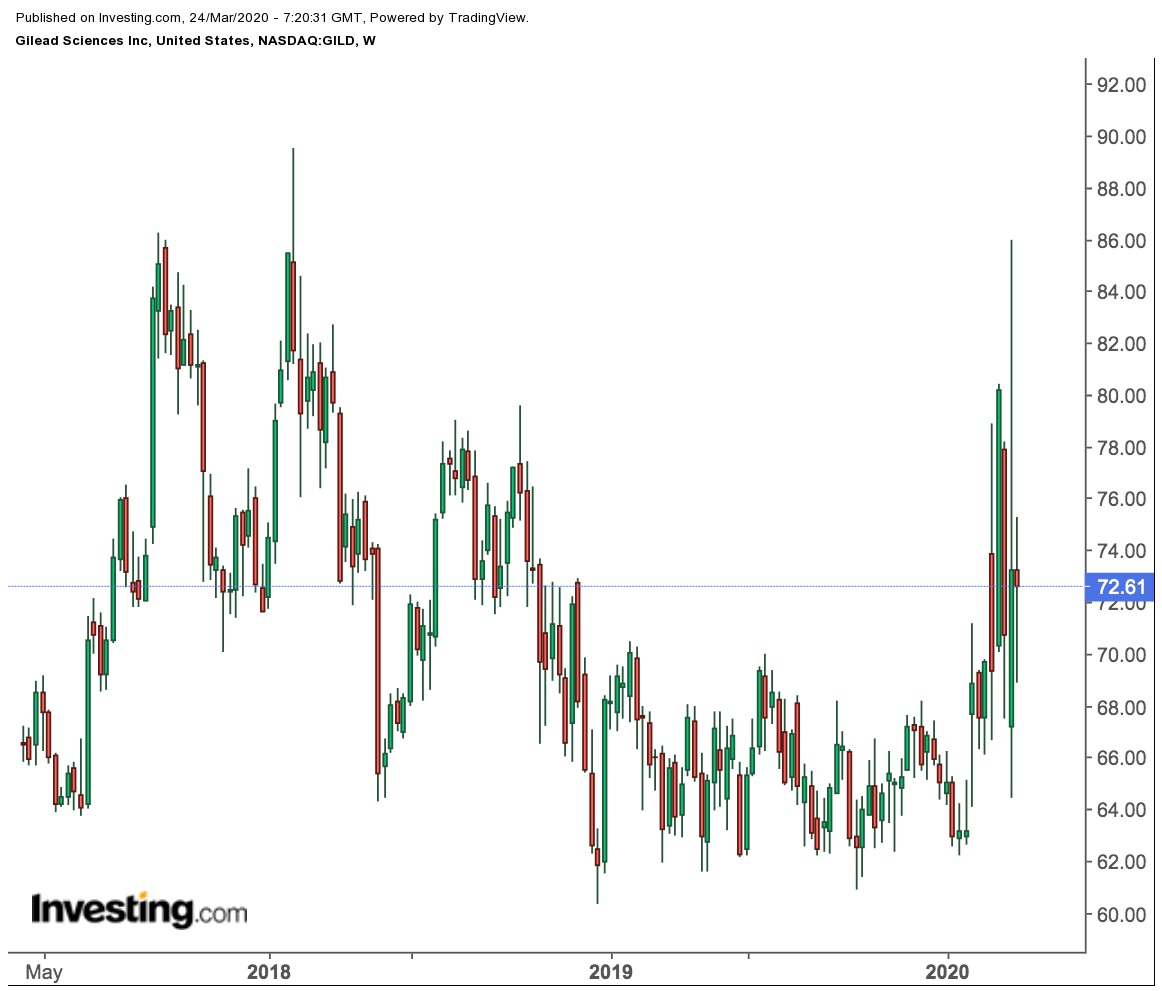The race to develop a vaccination to fight the deadly coronavirus is on. And as the competition intensifies along with the global emergency, investors are scooping up shares of those biotech companies that have shown the most promising results in this early stage of the outbreak.
Despite drastic measures by governments and health organizations across the world to stop the spread of this highly infectious pathogen, which causes the respiratory ailment known as Covid-19, authorities believe it's unlikely that the virus can be stamped out through containment measures alone.
The worldwide outbreak has already sickened 382,000 and the number of deaths to date has surpassed 16,500. In the U.S., a growing number of states have imposed more stringent protective measures and told residents to stay home as the rate of infection across the country surged past 40,000.
Below, three biotech stocks seeing a massive flood of trading activity as retail investors and day traders flip their shares, in the hope these companies may deliver a vaccine to combat the fast-spreading virus.
1. Moderna
Moderna (NASDAQ:MRNA) is a Cambridge, Massachusetts-based biotech company that is working on a vaccine based on its messenger RNA (mRNA) technology to make proteins that would prevent coronavirus.
The company is working in partnership with the National Institute of Allergy and Infectious Diseases and has started its Phase 1 clinical trial for the vaccine this month, to study the safety and the immune responses it generates.
Moderna said yesterday that its experimental vaccine for Covid-19 could be available to a select few as soon as this fall, potentially health-care workers, under emergency use authorization. A potential vaccine, however, is not expected to be commercially available for at least a year.
The drugmaker is also scaling up manufacturing capacity so it can produce millions of doses each month, the company said. Investors have sent Moderna stock soaring 34% this year. It fell more than 6% on Monday, to trade at $26.57.
The company reported just $60 million in sales last year with 20 pharmaceutical candidates in the pipeline for treatment areas including infectious diseases and cancer, but hasn't yet completed Phase 2 studies for any of them.
2. Regeneron
Regeneron Pharmaceuticals (NASDAQ:REGN) last week announced that it will begin clinical trials of a drug aimed at patients suffering from severe coronavirus symptoms across sixteen U.S. cities.
The trials, which will be conducted in partnership with French drugmaker Sanofi (NASDAQ:SNY) will start in New York, where the largest cluster of U.S. coronavirus cases exists, before expanding to cities around the country. According to Regeneron, its drug, Kevzara, could potentially become an important component in coronavirus treatment around the world.
Regeneron shares have risen more than 20% this year. The stock traded at $455.63 yesterday after rising more than 3% on the day. Unlike Moderna, Regeneron has nearly 30 products in its pipeline, in areas such as cardiovascular health and oncology, with six drugs already approved. In the last fiscal year, the company made $7.86 billion in sales and analysts expect 12% growth in revenue this year.
3. Gilead
The Foster City, Calif., drug maker Gilead Sciences (NASDAQ:GILD) is also among those companies developing treatments targeting the coronavirus. The company is studying the effectiveness of its antiviral remdesivir drug in China, with test results expected next month.
Robert Redfield, director of the U.S. Centers for Disease Control told lawmakers this month that remdesivir was also being used on compassionate grounds in Washington state.
But in a statement yesterday, the company said soaring demand for compassionate use has prompted the drugmaker to halt those requests while it sets up a new process. "In recent weeks, there has been an exponential increase in compassionate use requests for emergency access to remdesivir,” Gilead said, adding:
"This has flooded an emergency treatment access system that was set up for very limited access to investigational medicines and never intended for use in response to a pandemic."
Trading at $72.61, the company's stock is up 12% this year, compared with the S&P 500’s 31% plunge. Gilead has a full pipeline and nearly 30 products already on the market in treatment areas including HIV and cardiovascular health. The company posted $5.39 billion in net profit on $22.45 billion in sales in 2019.
Bottom Line
It’s hard to predict which company will succeed in producing a commercial grade drug in the next 12- to 18-months, given the uncertain nature of this business. If you want to bet on these stocks, then we favor Gilead and Regeneron, which already have diversified portfolios with strong revenue streams.
Which stock should you buy in your very next trade?
With valuations skyrocketing in 2024, many investors are uneasy putting more money into stocks. Unsure where to invest next? Get access to our proven portfolios and discover high-potential opportunities.
In 2024 alone, ProPicks AI identified 2 stocks that surged over 150%, 4 additional stocks that leaped over 30%, and 3 more that climbed over 25%. That's an impressive track record.
With portfolios tailored for Dow stocks, S&P stocks, Tech stocks, and Mid Cap stocks, you can explore various wealth-building strategies.

